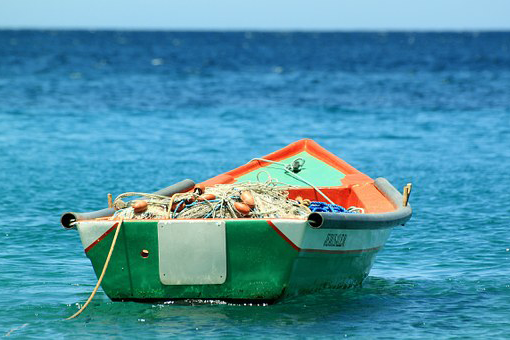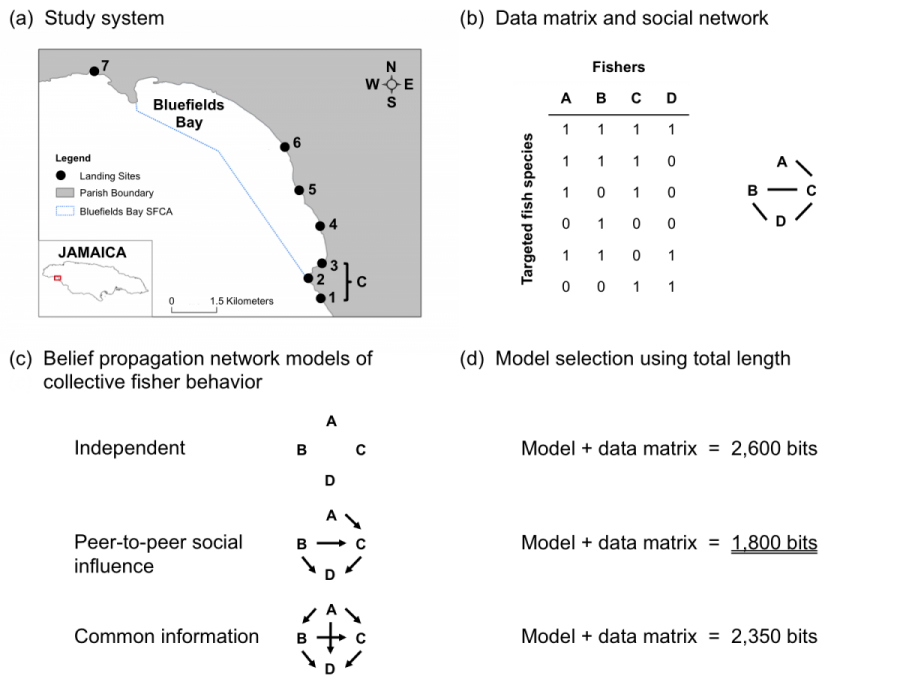
Research shows that social influence can impact small-scale fishers’ catch portfolios
Small‐scale fishers are advised to catch a wide variety of fish species as doing so can have significant economic and environmental benefits for a community. However, sustainably managing multiple species can be challenging, especially in regions with few formal institutions and limited state support. In a new Fish and Fisheries article, “Social ties explain catch portfolios of small-scale fishers in the Caribbean,” researchers from the University of Maryland’s National Socio-Environmental Synthesis Center (SESYNC) investigate how social influence impacts small-scale fishers’ decision-making on what species to target and catch. Former SESYNC postdoctoral fellows Steven Alexander and Phillip Staniczenko surveyed a community of small-scale fishers in Jamaica to see if a social network of information-sharing social ties could explain observed fishing practices.

Alexander, now a science advisor at the Canadian Department of Fisheries and Oceans, and Staniczenko, now an assistant professor at the City University of New York, developed a novel approach to modeling social ties based on belief propagation networks, a method more commonly found in applied mathematics than fisheries management. Staniczenko said their results “show how categorizing social ties and mapping how influence flows through a social network can be helpful for understanding what species small-scale fishers choose to catch.” Alexander added that their findings “reinforce the potential for using informal social networks to change fishing practices and increase the adoption of sustainable fisheries policies.” Such efforts could have a positive impact on coastal fishing communities by helping them reduce vulnerability to environmental and economic changes and build resilience.
Read more about the collaborative process behind this research in a Q&A with Staniczenko in: Academics in Canoes Getting Coffee.
Media Contact: communications@sesync.org